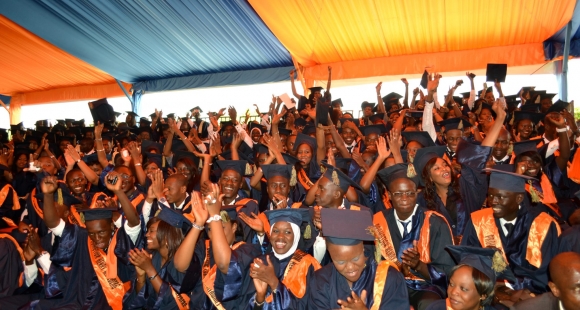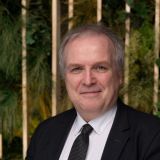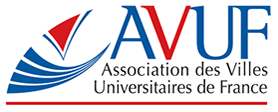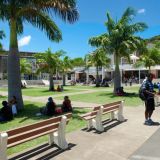
Amadou Diaw - Institut Supérieur de Management (ISM) Why did you found ISM ?
Why did you found ISM ?
 Why did you found ISM ?
Why did you found ISM ?The idea was to foster creativity and entrepreneurship. Before we started in 1992, schools weren't meeting companies' needs. ISM was the first private business school in French-speaking Africa.
Now private schools are legion and account for one-fourth of Senegalese university students. The tools and techniques we introduced have spread, even to public universities.
Why study in Senegal ?
Generally our students cannot go abroad. Wealthy students will always leave. We provide a solid education to those who stay.
The €1,500 tuition costs less than a trip to Europe. Our students want to support their families. We offer study abroad options but mobility should be smart. Start your studies in Africa. Then go to Asia or North America, not just Europe.
Olivier Sagna - Université Cheikh Anta Diop

Why do only 7% of Africans have access to higher education ?
Between 2011 and 2015, the baccalauréat exam pass rate in Senegal fell from 38% to 31.7%. That exam is the ticket to higher education. Yet even those who pass face social and financial hurdles.
What prospects do Senegalese university graduates have ?
Public schools are creating more professionally-oriented degrees. Private school graduates find work more easily, though there are fewer of them.
No French-speaking African universities made the Times Higher Education ranking of the top 30 African universities and only two made the top 100. Why is that ?
International rankings favor English-language publications and big research budgets. Naturally the wealthy countries have the biggest budgets. There are next to no economic powerhouses in French-speaking Africa. Public universities have to manage with tiny budgets and old facilities.
In the 2015 top 30 ranking, 12 schools are in South Africa, six are in Egypt and three are in Morocco. Yet countries like Senegal, the Ivory Coast, Cameroon and Burkina Faso have strong higher education systems. When graduates from those countries' schools continue their studies abroad, they often achieve excellent results.






